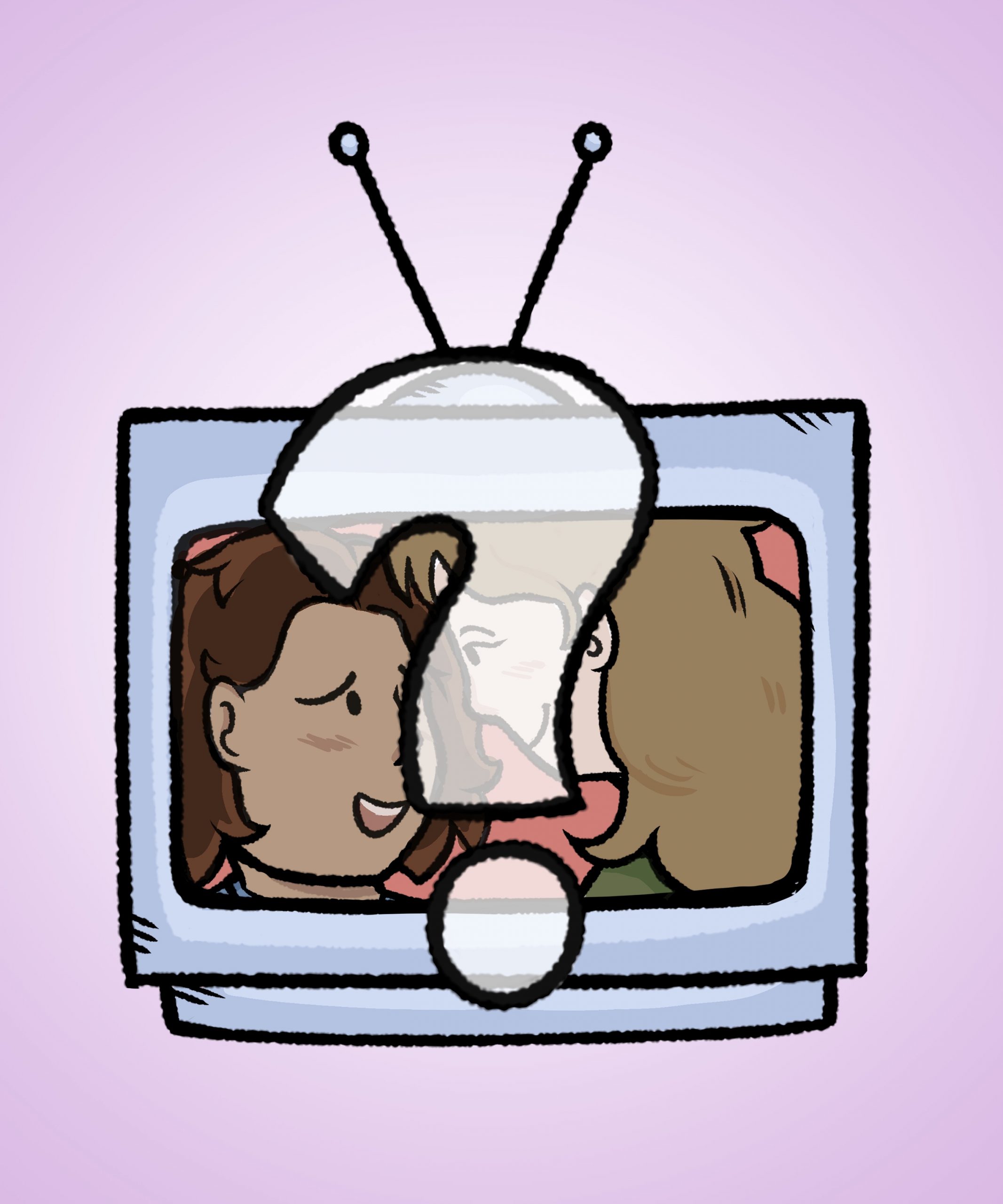Gio/OutWrite
This article contains spoilers for the TV show “Arcane.”
Season 2 of “Arcane,” the hit Netflix show based on “League of Legends,” is coming to us in November of this year, and personally, I couldn’t be more excited. Season 1 gave us a great look into the world, the characters, and the problems they might face in the coming seasons. The setting is beautiful and the character arcs are set up to be phenomenal, and I’m so excited to see where these adventures take us.
However, many viewers felt that the show was lacking in the area of Caitlyn and Vi — two of the main characters — and their relationship. Since a heterosexual-presenting couple got a sex scene on screen while Caitlyn and Vi didn’t even kiss by the end of the first season, many people felt as if their relationship was a part of a phenomenon known as queerbaiting.
Screen Rant gives us a great definition for queerbaiting: “A media product is judged as queerbaiting when it implies that a character belongs to the LGBTQ+ community or is in a same-sex relationship, often developing it in a way hinted at as romantic, without the story ever stating it explicitly.”
This is usually done in order to attract LGBTQ+ audiences without alienating homophobic ones. By establishing a relationship that looks romantic in nature but never explicitly reaches that point, media can get multiple audiences engaged with their content.
Let me give you some history behind queer representation. In 1927, the Hays Code de facto banned the portrayal of homosexuality in media due to profanity laws (thanks, Will Hays). For a long time, what we now call queerbaiting was the only legal way to represent queer relationships on screen. Explicit portrayals of homosexuality weren’t allowed due to these profanity laws, but a close friendship between two characters could be shown — even if it had homoromantic themes — so long as this relationship was never made explicitly queer.
Those times have passed. Now, we can freely show queer characters in whatever movies, TV shows, and documentaries we wish. There’s no need to hide queer relationships behind close friendships anymore; these characters can be out and proud. Now, the only reason for not showing queer characters explicitly on screen is to avoid excluding homophobic audiences.
Queerbaiting is present in almost all forms of media and has been for a long time. Queer people are right to be suspicious of media showing a relationship that seems as if it’s baiting them to interact with the content. However, this suspicion can be incredibly harmful, as in the case of “Arcane.”
Generally, if a portrayed queer relationship doesn’t evolve at a fast pace, audiences will often accuse the writers of queerbaiting. This causes writers to be unable to properly portray slow-building, deeper queer relationships without being pressured to rush things, which creates a cycle of queer representation that feels hasty or forced.
So, how do we fix this?
In an ideal world, queerbaiting would stop altogether because it’s harmful and takes away from other pieces of queer media. Since this isn’t an immediately viable solution, the next best thing is for writers to get involved in audience discourse. This is exactly what Amanda Overton, a writer of “Arcane,” does.
In response to the debate over Vi’s famous line towards Caitlyn — ”You’re hot, cupcake” — Overton states, “it was something I didn’t want to leave up to interpretation. Women who are attracted to women have experienced all too frequently what it’s like to have our feelings buried in subtext for all eternity, and in this instance, I thought it was important to bring more clarity to Vi’s character.”
This is a perfect example of a writer dealing with the conflict between accurate portrayal of a character and the need to represent queer audiences. Despite how real some characters can feel, it’s important to remember that they aren’t actually real people. This means they cannot be harmed by being forced to come out to an audience.
The audience doesn’t exist in the same world that the character does; unlike other characters in the media, we as the audience are separated from their lives, worlds, and the people who surround them. There’s no way that the audience’s knowledge of whether or not a character is queer can hurt that character, especially when this knowledge can be shared through outside sources (like writer confirmation) instead of in the media itself.
By mixing pieces of explicit queerness shown on screen with offscreen confirmation, writers like Overton are able to balance the task of keeping the story on the screen at its intended pacing with affirming to queer audiences that they’re being seen, heard, and directly represented.
At the end of the day, queerbaiting is harmful. The only reason it exists is so creators can have all kinds of audiences engaging with their content. For the most part, that is no longer the world we live in. Now, queerbaiting just serves to take away from actual queer media.
Recently, there’s been a movement of writers and creators that have depicted authentic queer relationships and fought against lackluster portrayals. Their depictions are criticized due to people confusing a slow-burn relationship with queerbaiting. Writers shouldn’t be forced into rushing queer stories for the sake of representation. The only way to truly put an end to this pressure is to stop queerbaiting altogether.

